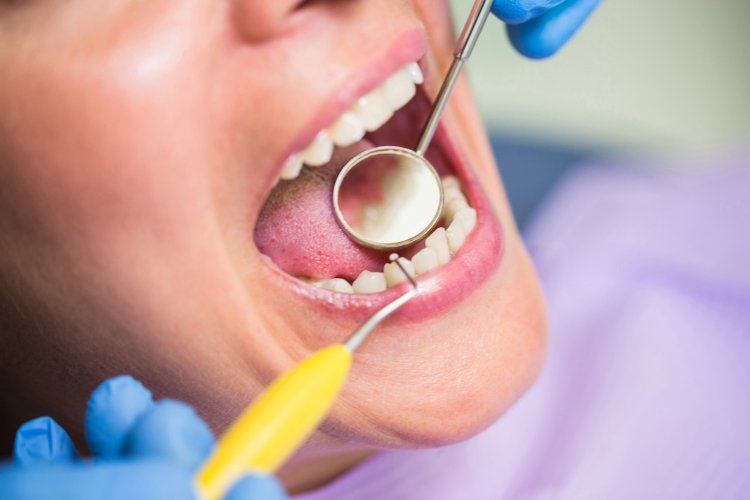Infection Alert: A Comprehensive Guide to Abscess Diagnosis and Treatment
An abscess is a localized collection of pus that can occur internally or externally on the body, resulting in inflammation, pain, and swelling. This comprehensive guide explores the various types of abscesses, their symptoms, underlying causes, diagnostic procedures, treatment modalities, and preventive measures.

Overview
An abscess forms when the body's immune response triggers the accumulation of pus, consisting of dead white blood cells, bacteria, tissue debris, and fluid, in response to an infection. Abscesses can manifest in different areas of the body, including the skin, oral cavity, and internal organs.
Types of Abscesses
Abscesses can be categorized based on their location:
- Skin Abscesses: These develop beneath the skin's surface and are often visible as swollen, tender areas. Examples include armpit abscesses, breast abscesses, and anorectal abscesses.
- Oral Abscesses: These affect the oral cavity and can involve the gums, teeth, throat, or tonsils. Common types include gingival, periapical, and periodontal abscesses.
- Internal Abscesses: Although less common, these can develop within organs such as the abdomen, spinal cord, or brain. Examples include abdominal, spinal cord, and brain abscesses.
Symptoms and Causes
Symptoms of an abscess vary depending on its location. Skin abscesses typically present with redness, swelling, fever, and chills. Oral abscesses may cause severe toothaches, gum swelling, and difficulty swallowing or opening the mouth. Internal abscesses can manifest with generalized symptoms such as fatigue, fever, and weight loss, often requiring imaging tests for accurate diagnosis.
Bacterial infections, primarily by Staphylococcus bacteria, are the most common cause of abscesses. These infections trigger an inflammatory response, leading to tissue destruction and pus formation.
Diagnosis and Tests
Diagnosing a skin abscess usually involves a physical examination and may include pus sample collection for bacterial analysis. Deeper or internal abscesses may require imaging tests such as ultrasound, CT scans, or MRI scans for visualization.
Management and Treatment
Treatment approaches for abscesses vary based on their size, location, and severity. While small, superficial abscesses may resolve spontaneously or with warm compress application, larger or deeper abscesses often require medical intervention. This may include surgical drainage under local anesthesia to remove pus and debris, accompanied by antibiotic therapy to combat the underlying infection. Dental abscesses may require root canal procedures or tooth extractions.
For internal abscesses, needle aspiration or drainage catheter insertion may be performed under local or general anesthesia to facilitate pus removal.
Prevention
Preventing skin abscesses involves maintaining good hygiene practices, avoiding skin trauma, and adopting healthy lifestyle habits such as regular handwashing and smoking cessation. Preventing oral abscesses revolves around dental hygiene and timely treatment of oral infections. Preventing internal abscesses primarily focuses on managing underlying conditions predisposing individuals to such complications.
Outlook / Prognosis
The prognosis for abscesses generally improves with prompt diagnosis and appropriate treatment. While minor skin abscesses may resolve without intervention, untreated abscesses can lead to severe complications, including systemic infections and tissue damage. Internal abscesses require close medical monitoring and may have variable outcomes depending on their location and management.
Living With
After abscess treatment, individuals should follow post-care instructions, including wound monitoring, dressing changes, and attending follow-up appointments. Any signs of infection recurrence or worsening symptoms warrant immediate medical attention to prevent complications.
In summary, understanding abscesses involves recognizing their diverse manifestations, addressing underlying infections, and implementing preventive strategies to minimize recurrence and promote optimal health.
#Abscess #Infection #Health #Medical #Treatment #Prevention #Hygiene #DentalCare #SkinHealth #Wellness #Healthcare
Disclaimer:
The information provided in this article is for educational purposes only and should not be considered medical advice. If you have any health concerns or are experiencing symptoms, it is important to consult with a healthcare professional, such as a doctor or clinic, for proper diagnosis and treatment. Always seek the advice of your doctor or other qualified health provider with any questions you may have regarding a medical condition. Do not disregard professional medical advice or delay in seeking it because of something you have read in this article.
What's Your Reaction?





















